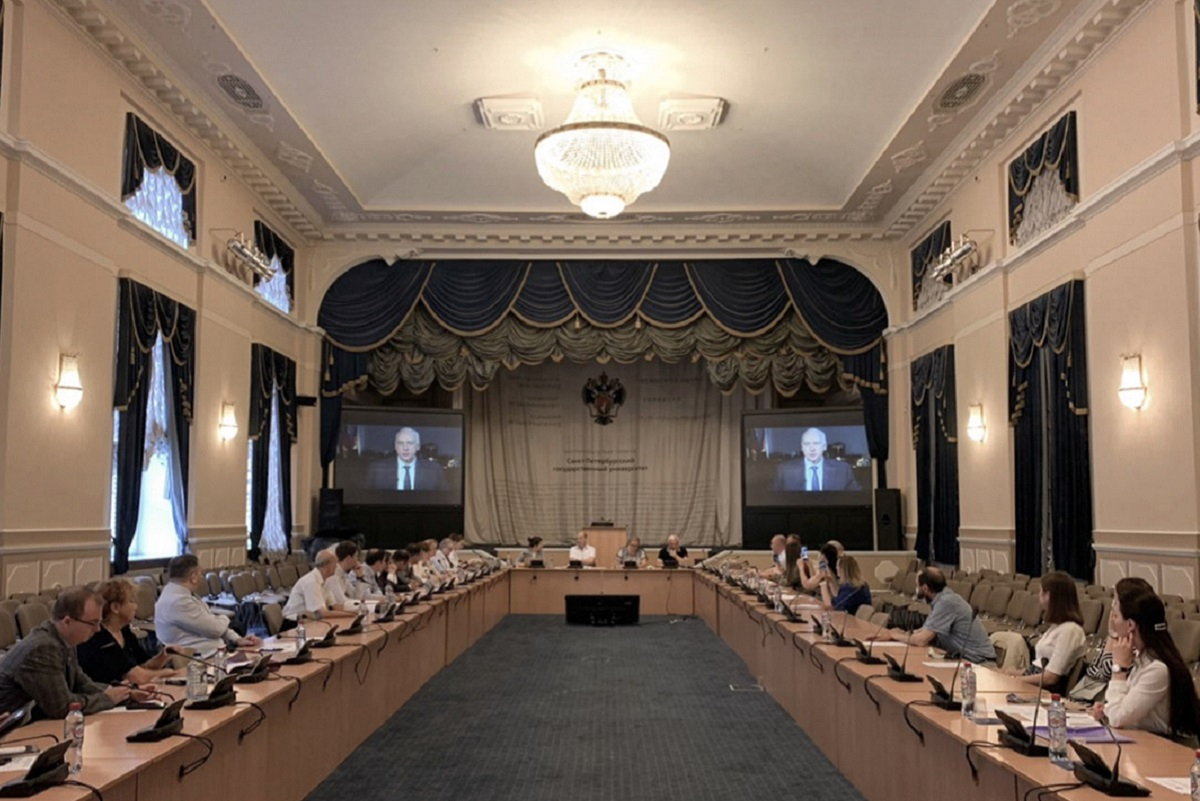How science can assist in solving crime: Chairman of the Investigative Committee of the Russian Federation Alexander Bastrykin

St Petersburg University has held the International Research and Practical Conference ‘Scientific School of Criminal Procedure and Forensic Science of St Petersburg University’. The conference brought together: Alexander Bastrykin, Chairman of the Investigative Committee of the Russian Federation; Tatiana Moskalkova, Russia’s Commissioner for Human Rights; researchers in law; and lawyers.
St Petersburg University’s online course in Criminal Procedure is open for registration. The course is underpinned by the traditions of the Leningrad (St Petersburg) research school of criminal proceeding, teaching experience of its outstanding representatives, and experience of other highly respected research schools.
Opening the plenary session, the Dean of the Faculty of Law of St Petersburg University Sergei Belov reminded that the origin of forensic science was deeply rooted in our history: ‘At St Petersburg University, science is at the core of solving crime. The University was the first to formulate an idea of and lay foundation for teaching criminal procedure as an independent discipline. Being able to bring together traditions and innovations enables us to remain at the forefront of research in our country.’
In his video address, Alexander Bastrykin, Chairman of the Investigative Committee of the Russian Federation, told the participants of the conference that Ivan Krylov had historically played an important role in improving our legislation. He was an outstanding researcher and a professor of the University. He founded the Leningrad (St Petersburg) school of forensic science. This year marks his 115th anniversary. His works laid foundation for developing forensic science today. ‘Ivan Krylov could successfully investigate both special and general methodological issues of forensic science. He was an incredibly talented researcher of astonishing erudition. He was both a historian and a philosopher of forensic science’, said the Chairman of the Investigative Committee of the Russian Federation.
Additionally, Alexander Bastrykin mentioned that science played a crucial role in solving crime for Ivan Krylov: ‘He told that among all the disciplines in law forensic science was most closely associated with investigating and solving crime. What we have achieved in forensic science straightaway influences how we investigate a case.’ These ideas still underpin the way how the Investigative Committee of the Russian Federation approaches solving crime. Cutting-edge information technologies and advances in science and development are much in demand in solving crime. According to Alexander Bastrykin, this is the main tool to ensure high quality of investigation.
Today, St Petersburg University and its criminal school are recognised in Russia and worldwide.
Tatiana Moskalkova, Russia’s Commissioner for Human Rights
‘The school is known for its works, researchers, and, what is more important, advances in improving legislation and new fundamental theoretical works’, said Tatiana Moskalkova, Russia’s Commissioner for Human Rights. The University has always excelled in providing professional education that is underpinned by good moral values, she said.
Tatiana Moskalkova said that they mostly received complaints in relation to violation of human rights in criminal-remedial sphere. In 2020, they received 11,500 complaints. Among the main reasons are: failure to meet the deadline of investigating a crime, custodial detention, and court proceedings; and deprivation of the right to have access to the courts, for example, a refusal to initiate a criminal case.
Moving online enabled over 120 persons to take part in the conference. They are from Russia (Moscow, St Petersburg, Ekaterinburg, and other cities), China, Japan, Italy, and Poland.
The second day of the conference focused on the reports by early-career researchers. There were over 20 reports delivered by students and master’s students from universities across Russia and abroad.

